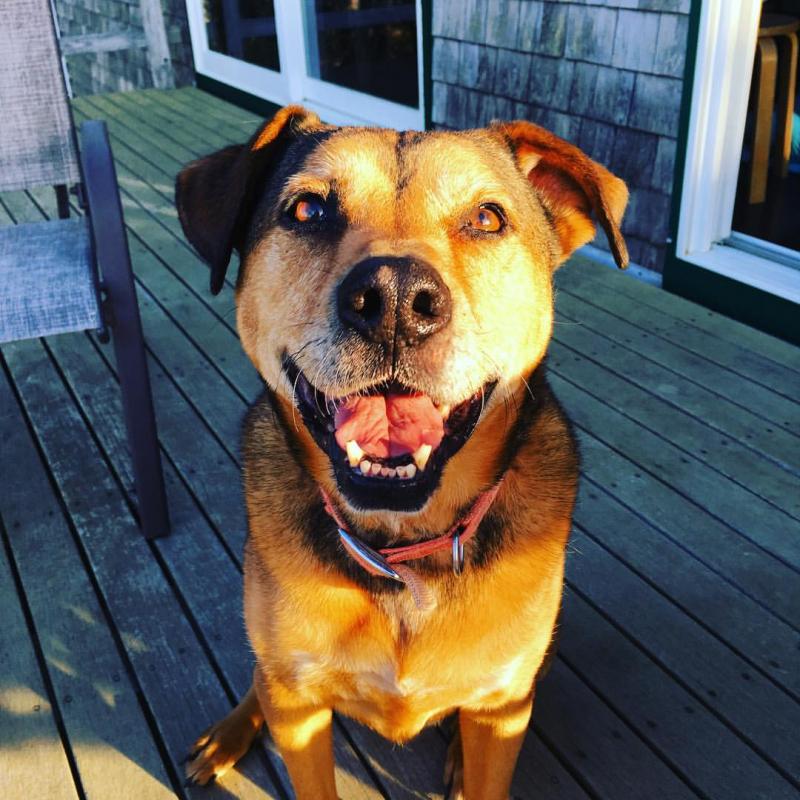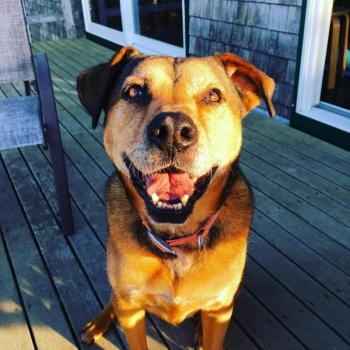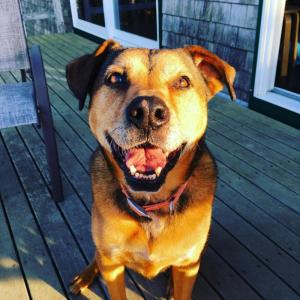Kennel cough spike plagues Midcoast dogs
CAMDEN — A highly contagious canine respiratory illness has been on the rise in the Midcoast area during recent weeks. Dr. Stacey Contakos, DVM, owner of the Camden Hospital for Animals said the practice has seen eight cases of kennel cough during the last two weeks.
“This is completely out of the ordinary for us. I haven't seen that many cases collectively in the last nine years. All of our cases have been from two daycare/boarding facilities. It is highly contagious so when you have a number of dogs in close quarters/direct contact, like in doggie day care, it will spread quite quickly.” Contakos stated via email.
Contakos explained that kennel cough, or bordetella, typically has a viral component and a bacterial component. While generally non-life-threatening, it is highly contagious.
“Clinical signs usually begin with a soft cough that gradually progresses into more of a goose-honk cough,” Contakos explained. “I often compare it to croup in a baby. For most dogs, the symptoms are self-limiting over the course of 10 days or so. However, if their immune system is compromised in any way and it is left untreated, a secondary pneumonia can develop. Also, complications to the coughing can involve aspiration pneumonia if there is wretching/vomiting at the end of a coughing spell.”
Contakos added that dog owners — even those who have pets that have been vaccinated against kennel cough — should stay clear of facilities that have housed infected dogs to allow time for adequate disinfection. She explained that the kennel cough vaccine does not prevent the disease, but lessens the severity. It is typically given only to dogs who are frequently exposed to communal settings such as boarding facilities, daycares and dog parks, she wrote.
“The virus is spread through respiratory particles so it goes out into the environment and can stay there,” she stated.
She recommends that dog owners who do not vaccinate against kennel cough exercise caution, even recommending they avoid nose-to-nose contact with other dogs in controlled situations. She also recommends that owners who do not typically vaccinate against kennel cough consider getting their dogs vaccinated now.
“The vaccine develops immunity very quickly (in comparison to other vaccines) so it is worth it to get the vaccine now even if the owner has opted out of it in the past,” she explained. “It generally takes about five days to develop an immune response to the vaccine.”
Six out of the eight cases Contakos has seen are a result of unvaccinated dogs in high-risk situations, such as daycare, she noted.
Though the vaccine may not always prevent the disease Contakos said the vaccine is highly effective in lessening the severity of the illness. Additionally, puppies can receive the vaccination as early as eight weeks of age.
“The vaccine can be administered as young as eight weeks of age — this is a local oral or nasal inoculation so there is no interference with maternal antibodies and generally extremely safe since it is not given systemically,” she stated.
She said that treatment is generally a course of antibiotics, usually doxycycline. She advised that if your dog is presenting signs of kennel cough you should contact your veterinarian and work to keep your dog away from communal situations where they may put other pets at risk. She added that if your dog has been at a facility that has housed dogs diagnosed with kennel cough they should be kept at home and owners should remain vigilant about looking for signs their dog may have the illness.
“There is a period of time between exposure and when clinical signs develop so it’s important to wait see even if your dog isn't coughing at the present moment,” Contakos wrote.
Jenna Lookner can be reached at jlooknercopy@gmail.com.
Event Date
Address
United States




























